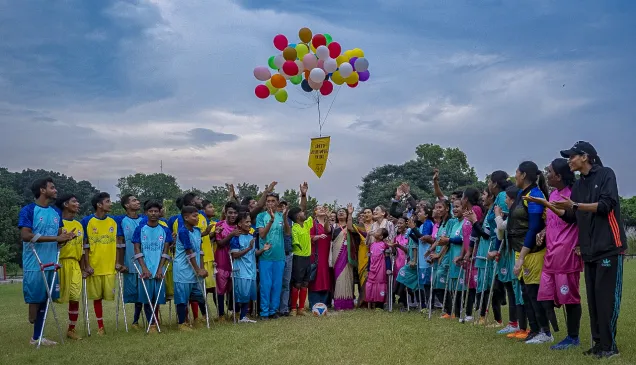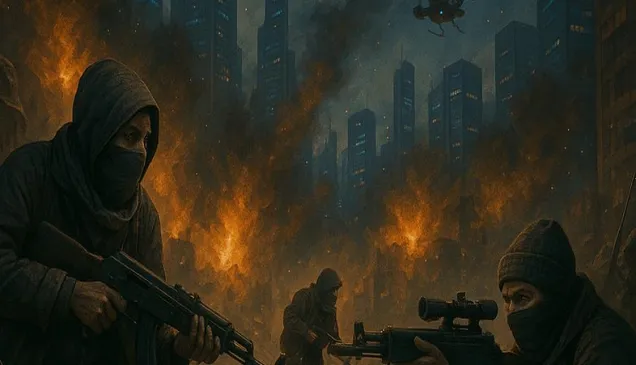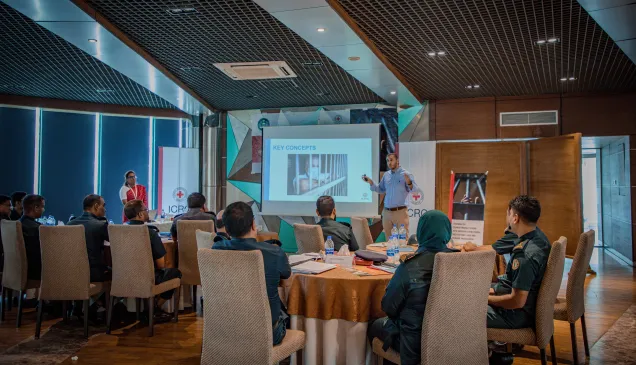After a 600 km long ride back home to northern Kurigram district, when Rehana saw her brother she forgot her own fatigue and cared for him instead.
Bangladesh: Reunited family experiences hope amid COVID-19 gloom
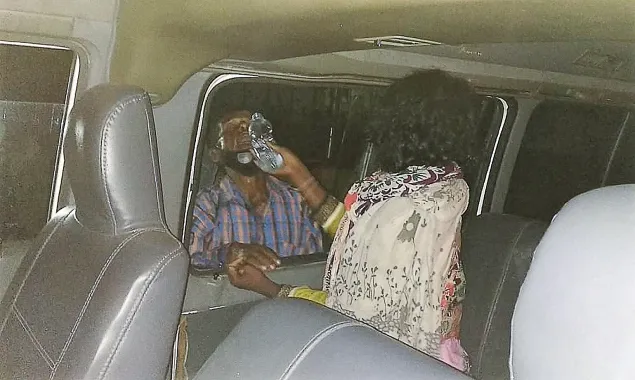
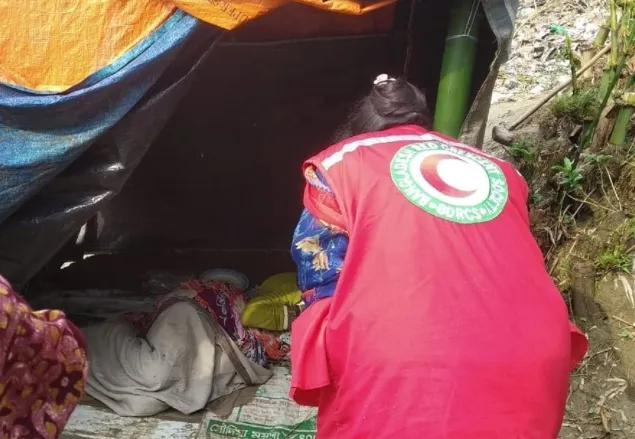
Taznoor Ahmad Sheonty, a BDRCS volunteer, met Rehana in Khagrachari where she was living along the India border.
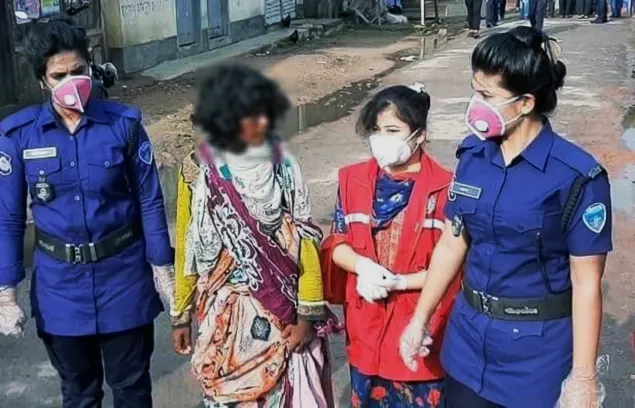
Rehana was handed over to the BDRCS team in Khagrachari to reunite her with her family despite challenges posed by COVID-19 pandemic.
The world may seem frozen by fear and anxiety as it deals with the COVID-19 pandemic, but a spurt of happy excitement in Umar Ali's home reminds that hope, love and the spirit to help one another is thriving even in these tough times. As an ordinary evening in the first week of May turned into a celebration for the family, Ali held his sister Rehana* in a tight hug as if he would never let her go.
Rehana, who has been struggling with mental health issues and went missing two years ago, was reunited with her loved ones following a dramatic sequence of events involving many people including teams from the International Committee of the Red Cross (ICRC), the Bangladesh Red Crescent Society (BDRCS) and the Border Guard Bangladesh.
For the last two years, Ali rarely lived through a day without wondering about his sister. "Rehana had been a victim of domestic violence which led to psychological problems. But she was responding well to treatment and went to Dhaka looking for work. She used to stay in touch with us and things were fine till suddenly we stopped hearing from her," said Ali. Alarmed, the family started looking for her but there were no leads.
While the family tried to make sense of the situation, the ICRC started looking into the case following media reports about Rehana. Meanwhile, border guards had found her in Khagrachari, in no man's land along the India border, and started searching for her family. They finally traced the family to northern Kurigram district. That's when Ali got a call saying that his sister may be alive.
Ecstatic, he wanted to see Rehana immediately but faced a new challenge. The family could not go to Khagrachari to get her because of the travel restrictions imposed to control the pandemic.
The BDRCS' Restoring Family Links (RFL) team stepped in and requested authorities for permission on humanitarian grounds to take Rehana back to her family. Financed by the ICRC, a BDRCS team, including a female volunteer, first travelled to Khagrachari from Dhaka to receive Rehana from the authorities who were providing her food and shelter. Then they drove another 600 km to northern Kurigram district, where Ali was waiting for his sister.
"I cannot thank you enough for everything you have done for us. We did not even know if Rehana was dead or alive. I thought I had lost her forever but here we are! My sister is with me after such a long time," said Ali.
Responding to the call of duty regardless of the situation, the BDRCS volunteers said they got to be part of a unique family reunion.
"To be separated from our loved ones is terrible! I wondered what it would have been like if one of my family members had gone missing. Thinking about that moved my heart. I tried to be by Rehana's side to comfort her as she was struggling due to her fragile mental state," said Taznoor Ahmad Sheonty, a BDRCS volunteer.
The ICRC and BDRCS work together through the Restoring Family Links network to put people in contact with relatives and reunite families separated due to disasters, migration, armed conflict and other violence. The network has been helping to trace displaced people following the Rakhine crisis of 2017 and has also been helping foreign detainees get in touch with their family members and embassies.
(*name changed to protect identity)

